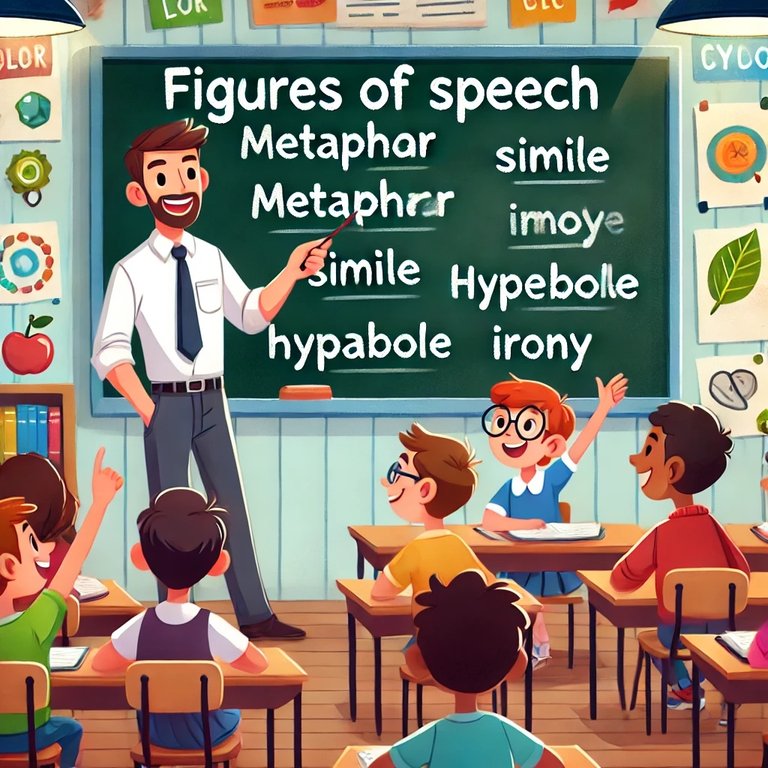Top 20 Figures of Speech Every Writer and Speaker Should Know

AI GENERATED IMAGE
Hello Hive Fam/ English teachers in the house,
As lovers of language, communication, and creativity, it's important we understand the tools that make our expressions more impactful. Whether you're a student, teacher, content creator, poet, or public speaker, mastering figures of speech will take your language skills to the next level!
Here are 20 powerful figures of speech you should know:
1 . Alliteration – Repetition of an initial consonant sound.
E.g. Peter Piper picked a peck of pickled peppers.
2 . Anaphora – Repetition of a word or phrase at the beginning of successive lines or sentences.
E.g. We shall fight on the beaches, we shall fight on the landing grounds...
3 . Antithesis – Contrasting ideas presented in a balanced way.
E.g. It was the best of times, it was the worst of times.
4 . Apostrophe – Addressing an absent person, object, or abstract idea.
E.g. "O Death, where is thy sting?"
5 . Assonance – Repetition of vowel sounds within words.
E.g. The rain in Spain stays mainly in the plain.
6 . Chiasmus – A reversal in the order of words in two otherwise parallel phrases.
E.g. Never let a Fool Kiss You or a Kiss Fool You.
7 . Euphemism – A milder way to express something harsh or unpleasant.
E.g. “Passed away” instead of “died.”
8 . Hyperbole – Extreme exaggeration for effect.
E.g. I’ve told you a million times!
9 . Irony – Saying the opposite of what you mean or when the unexpected happens.
E.g. A fire station burns down.
10 . Litotes – Understatement by using double negatives or negating the opposite.
E.g. She’s not unattractive.
11 . Metaphor – A direct comparison between two unlike things.
E.g. Time is a thief.
12 . Metonymy – Using something closely related to represent something else.
E.g. “The pen is mightier than the sword.”
13 . Onomatopoeia – Words that sound like what they describe.
E.g. Buzz, crash, hiss.
14 . Oxymoron – Combining contradictory terms.
E.g. Deafening silence, bitter sweet.
15 . Paradox – A statement that seems self-contradictory but reveals a truth.
E.g. Less is more.
16 . Personification – Giving human qualities to non-human things.
E.g. The wind whispered through the trees.
17 . Pun – A play on words with double meanings.
E.g. Time flies like an arrow; fruit flies like a banana.
18 . Simile – A comparison using “like” or “as.”
E.g. As brave as a lion.
19 . Synecdoche – A part representing the whole, or the whole representing a part.
E.g. “All hands on deck.” (hands = sailors)
20 . Understatement – Making something seem less important than it is.
E.g. Saying “It’s just a scratch” for a serious wound.
Language is beautiful, and these figures of speech help us express deeper meanings, emotions, and creativity. Which one is your favorite? Let’s discuss in the comments!
Follow me @nsigo1 for more educational and inspirational content.
It can only get better!